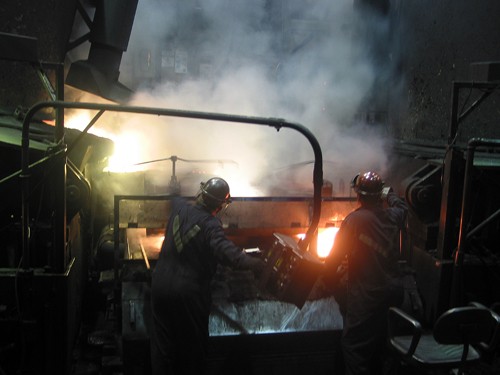WASHINGTON — The good paying, predominantly white-collar jobs that once sustained many American communities are disappearing at an alarming pace, keeping the unemployment rate stubbornly high, despite the end of the Great Recession.
These jobs in accounting, financial analysis, commercial printing and a broad array of other mostly white-collar occupations are unlikely to come back, experts predict.
There isn’t a single cause to the trend. Some of it is explained by changing technology, some of it is the result of automation. Sending well-paying jobs to low-cost centers abroad is a big part of the story. So is global competition from emerging economies such as China and India.
The result is the same in all cases, however. Jobs that paid well, required skills and produced vital communities are going away and aren’t being replaced by anything comparable.
“”Unfortunately, the evidence is that you see a form of downward mobility of workers who are displaced from middle-skilled, stable career occupations,”” said David Autor, an economist at the Massachusetts Institute of Technology, in an interview.
Autor published a paper in April, suggesting that the U.S. labor market has become polarized, with employment growth in the high-skill, high-wage end, and the low-skill, low-wage end. The vast middle is shrinking, he said.
“”The Great Recession has quantitatively but not qualitatively changed the direction of the U.S. labor market,”” Autor concluded, pointing to an accelerating trend that he said has been underway for more than a decade.
As it stands, 14.8 million Americans were unemployed in September, 6.1 million of them for six months or longer. The unemployment rate has hovered around 9.6 percent for half a year, and few economists expect it to dip below 8 percent for years to come.
Lois Williams-Norman is on the upper end of what could be called a middle-skill job, working her entire career in corporations as an internal financial and budget expert. Like millions of Americans, she’s had to swallow her pride and step down the income ladder.
“”I’ve gone from a six-figure income to seriously looking at positions that are going to be paying probably half as much. So over the past 10 years, my income has continued to decline year after year,”” Williams-Norman said during an interview in the western New York city of Rochester, in between networking events where she searched for employment.
Her problems began in 2001 when she was downsized out of a job at Xerox Corp. after 20 years with the iconic company. Williams-Norman, who holds an MBA degree, was forced to take a 20 percent salary cut when she landed her next job at a pharmaceutical firm. After going through four corporate employers in 10 years, Williams-Norman, who’s in her 50s, has been out of work for more than a year. She’s sober about her job search.
“”I know a lot of them aren’t going to come back, and the new jobs aren’t going to pay as much,”” she said.
While older workers fight it out for a scant number of jobs, younger ones are voting with their feet, departing what once was prime turf for corporate America.









